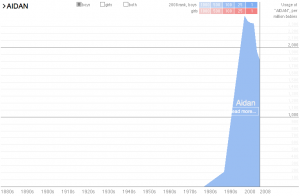 As part of my top-secret, undercover assignment here in Italy, I have to repeatedly lie about my work. That can be easy in certain parts of Europe, particularly France, where asking “What do you do for a living?” is considered the least imaginative question possible. Indeed, friendships and even marriages last decades with neither participant entirely sure of where the other person spends the majority of the day.
As part of my top-secret, undercover assignment here in Italy, I have to repeatedly lie about my work. That can be easy in certain parts of Europe, particularly France, where asking “What do you do for a living?” is considered the least imaginative question possible. Indeed, friendships and even marriages last decades with neither participant entirely sure of where the other person spends the majority of the day.
Italy, for better and for worse, is not France. Eventually, someone at the dinner parties I’ve been going to will get around to asking me “Che cosa fai per lavoro?,” which is when I’ve been deploying what is probably my one joke in Italian. “Io sono casalingo,” I tell them, then wait a full second while they process this preposterous statement—then explode into uproarious laughter.
What I’ve told them—”I’m a househusband”—may sound innocuous in America, and especially in New York, but to Italian ears it’s an absurdity. Here, every wife is a housewife (casalinga), even if she works longer hours and makes more money than her husband. Women cook, clean and take care of the kids, while men… do pretty much whatever they like.
But while I thought I was merely providing my hosts with some “What a country!” amusement, two journalists friends—both Italy vets, one of whom has lived here his entire life—told me today my partially true quip would have other results.
“First,” they told me, “Italian men will lose all respect for you.” Italians might understand if, say, I’d lost my job and was at home, looking (or not) for a new gig. But to actually do stuff around the house? To cook? To change diapers? That’s what a wife is for! To even consider doing dishes is like putting on women’s underwear and squatting to pee.
Okay, so no one here has any respect for me. I’m used to that. But I think my friends might be underestimating Italians’ tolerance for men’s new role. On the Internet, at least, I’ve found a remarkable organization, the seven-year-old Associazione degli Uomini Casalinghi, dedicated to “rediscovering the pleasure that can come from participating in activities that were once considered humiliating or undignified for true men.” The Website is full of information at once useful—how to organize and keep a clean kitchen, how to install solar panels in a historic district—and inspiring. “Italian wives prefer househusbands,” says one article. Another has news of a University of Parma psychologist who’s started a program called “Non chiamarmi mammo!” (Don’t call me Mommo!)
But who is the Uomo Casalingo? I haven’t seen any around yet (after all, they’re hidden away in their homes), but the site tells us he loves his work, is a pacifist and a free man, and is a testament to his times.
I don’t know about the pacifism, but this uomo sounds like he might be someone we want to get on the ‘wagon. (Or, as they will probably never say here, sul vagone.) He might be a humiliated wuss, but his fashion sense will make us look good, and we can rely on him for prosciutto.


